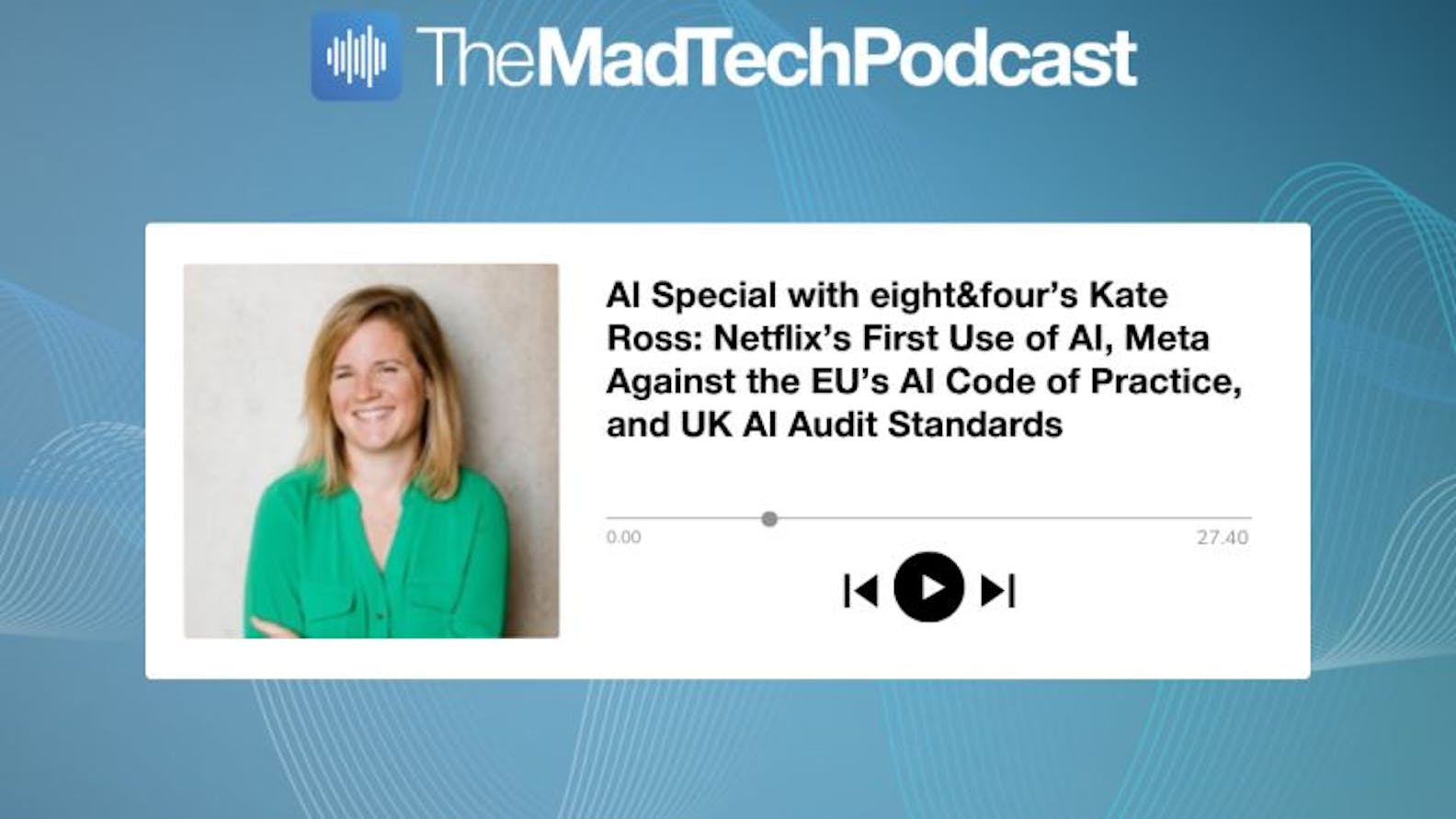“SEO is dead.” “Google is finished.” “GEO is the future.” If you work in marketing, you’ve seen the headlines. But our Co-Founder & CEO, Kate Ross, writing for ExchangeWire, argues that these takes miss the point. “AI isn’t killing search. It’s rewiring it, shifting how people look for answers, where clicks go, and what that means for brands.”
AI is influencing search in two very different places: inside Google, through features like AI Overviews and AI mode on select queries; and outside Google, where people are experimenting with ChatGPT, Perplexity, and other AI-first tools. “It’s an important distinction; AI is changing existing search, and it’s also leading users to search differently. Arguably, today, the biggest impact is the first,” says Kate.
According to Kate, despite the hype around ChatGPT, its search volumes remain tiny compared to Google, which still holds over 90% market share. She points to SEMRush data suggesting that regular ChatGPT use often drives an increase in Google searches too, as frictionless conversational experiences spark curiosity, fact-checking, and longer journeys.
AI Overviews, however, are already reshaping behaviour. Between March and July, around 13–18% of Google queries generated an AI summary. “When people see one, they click fewer links (8% vs 15% CTR to web results), redistributing traffic,” Kate notes. She adds that the majority of these lost clicks are likely low value to brands - usually informational, rather than purchase-led - which explains why many are seeing falling traffic without equivalent conversion drops. Publishers, though, are being hit harder, with some reporting Google referral traffic drops of around 25%.
Kate also highlights the publisher fightback, pointing to Cloudflare’s July 2025 “Independence Day” update, which blocked many AI bots by default and launched pay-to-crawl options while lobbying Google for stronger protections. “For decades people have generated content in order to drive Google traffic. If Google is no longer driving that traffic, content publishers lose economic incentive to create it. And without content, will AI Overviews survive? And what of Google’s paid ads business model?”
Amid the alarmism, Kate stresses that another shift deserves just as much attention: the rise of social platforms as search engines. According to WARC, US weekly searchers now search twice as often on TikTok, YouTube, Reddit, and Pinterest as they do on AI platforms: 30% versus 14%. “This is the quiet story the AI hype obscures,” she says. “Social SEO is now a critical part of discovery.”
So is AI killing search? According to Kate, not at all, but it is reshaping it. “Yes, AI Overviews are changing behaviour. They’re still a minority of queries, but they meaningfully reshape click-through when they appear. Google is keeping pace. Don’t bet on its demise, bet on a more blended, answer-forward search experience across Google and social/video surfaces. Social is non-negotiable. Treat TikTok, YouTube, and Reddit as core search channels, and increase investment here.”
In other words, the future of search won’t be about one platform replacing another, but about how people move fluidly across Google, AI tools, and social platforms to find the answers they need. For brands, that means the challenge isn’t just keeping up with Google’s shifts. It’s building strategies fit for an ecosystem that’s more fragmented, more conversational, and more dynamic than ever.


